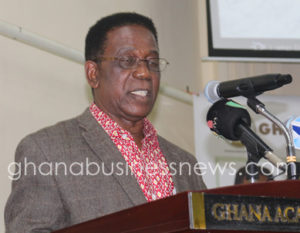Ghana government says it will remove bottlenecks to tertiary admission processes

Professor Kwasi Yankah, the Minister of education in charge of tertiary, has said government was going to remove all bottlenecks to admission process and policies that are unjust and discrimination against the majority of students from less endowed homes and institutions.
He emphasized that government seriously needed the private education sectors to help reduce burdens in the entire education system, saying that, “Ghana`s bogus” affiliation system would soon be a thing of the past, and added, government would remove all barriers and obstacle in that regards.
Prof. Yankah gave the hope when addressing the 18th graduation and 28th matriculation of the Catholic University College of Ghana (CUCG), Fiapre, in the Sunyani West District of the Bono Region as the special guest for the occasion.
He said the tertiary education policy document which is a landmark development was now available and not meant to compromise the quality of education but, rather seeks to introduce greater fairness into admission processes and bring Ghana in line with more flexible admission practices.
Prof. Yankah stressed that D7 grades which do not matter in some students programmes of study such as ‘Humanity or Hospitality’, but hinders the student`s admission processes would critically be looked at.
The policy, he noted would bring a considerable relief to private universities and would also introduce “more stringent measures that seeks to prevent the mushrooming of the purposeless private universities”.
More importantly, Prof. Yankah believed the new bill seeks to consider private and public universities on equal footing, completely eliminating policy discrimination against the private sector.
He added that the government believes in initiating “policies that would lift impediments we have created for ourselves, burdens we have manufactured ostensibly to drive the private sector out of market”.
Therefore, he said the Ministry of education was currently liaising with the National Council for Tertiary Education to spell out the implications of this policy for admissions to Universities and other relevant institutions.
He said the government`s educational reform agenda is easily the most far reaching in Ghana`s educational history, ranging from Kindergarten, through primary, Junior and Senior High, technical vocational and across to tertiary education and assured no single sector in education would remain untouched.
Prof. Yankah said government had noted that 60 per cent of all unemployed Ghanaians are youth and was committed to solve the canker through education, innovation and enterprise development to transform the huge pool of idle hands into a creative force by removing all obstacles that impede access.
Source: GNA
